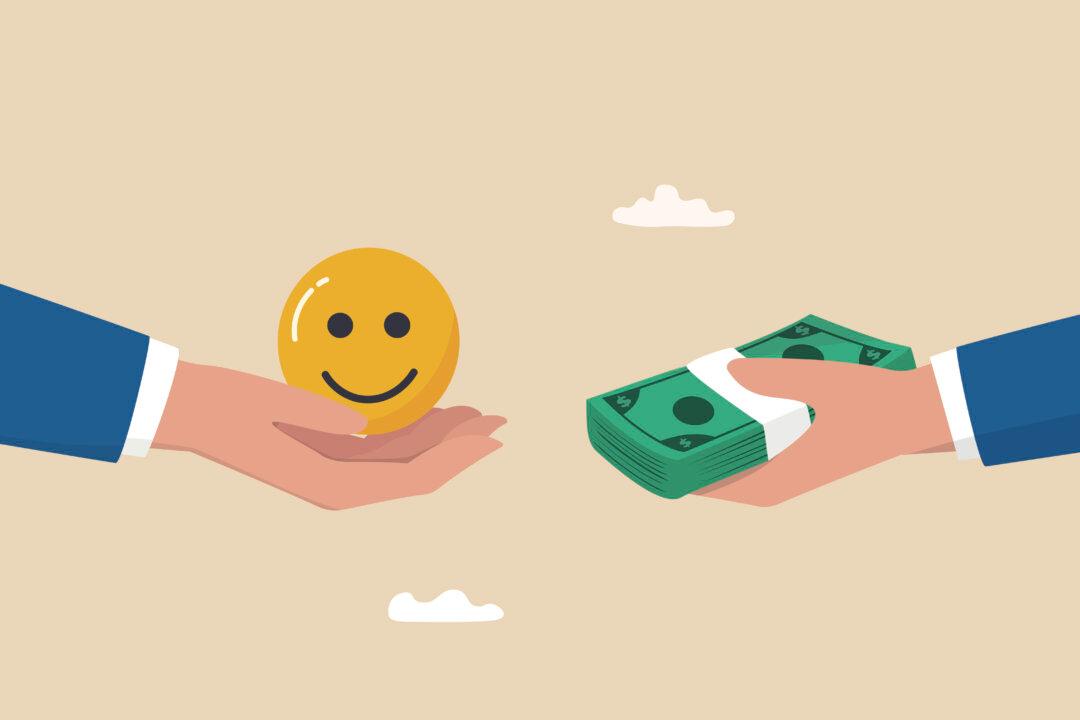When a University of Michigan survey asked people what they believe would improve their quality of life and make them happy, the answer given most often was “more money.”
In the book “The Day America Told the Truth,” James Patterson and Peter Kim asked, “If you could change one thing about your life what would it be?” The No. 1 response, at 64 percent, was “greater wealth.”





